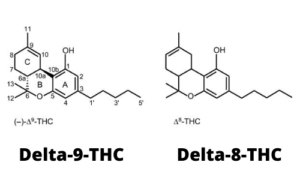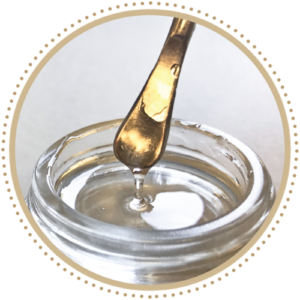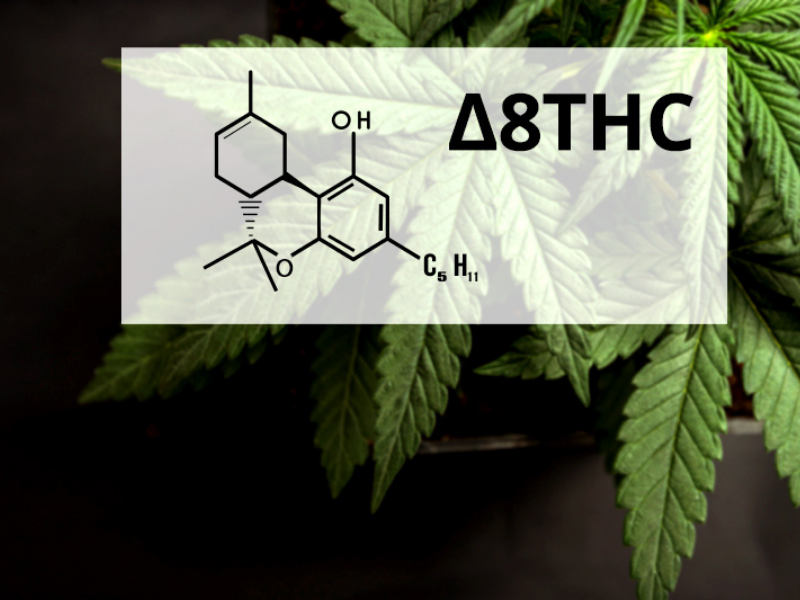Re-posted from The Cannabis Life Network
The world is getting wise to the truth about weed. As we are becoming aware of the benefits of cannabis, smart people are getting curious about it. When you take a plant with so much healing potential and then study its possibilities, you can learn some incredible things. As the research continues, a new cannabinoid is getting noticed and thanks to the progression of extraction technology, Delta-8-THC is becoming available. Here are the details on Delta-8-THC and what it may have to offer the world…
What is Delta-8-THC
Delta-8-THC is a chemical compound found within the cannabis plant but only in small amounts. According to The National Cancer Institute, “Delta-8-Tetrahydrocannabinol is an analogue of tetrahydrocannabinol (THC) with antiemetic, anxiolytic, appetite-stimulating, analgesic, and neuroprotective properties. Delta-8-tetrahydrocannabinol (Delta-8-THC) binds to the cannabinoid G-protein coupled receptor CB1, located in the central nervous system.”

Delta-8 vs Delta-9
In the world of known cannabinoids, Delta-9-THC is a household name but, have you ever heard of Delta-8-THC? The two cannabinoids are very similar in their atomic structure, differing only in a few atomic bonds. Plus, both occur naturally within the plant. However, Delta-8-THC is typically found in small amounts, unlike the abundant Delta-9-THC.

Another notable difference when comparing Delta-8 to Delta-9 is the overall effect. Where Delta-9-THC has a strong, psychoactive effect, Delta-8 feels different. The National Cancer Institute reported strong words to support this; “This agent exhibits a lower psychotropic potency than delta-9-tetrahydrocannabinol (delta-9-THC), the primary form of THC found in cannabis.”
The Benefits
So why bother going to all this trouble to access Delta-8-THC when you can just use CBD or regular Delta-9? The benefits and when it comes to this particular cannabinoid, it gets very specific. Have you ever wanted to smoke something to soothe your pain, relax your body, and improve your overall mental clarity? Meet Delta-8! On top of those effects, Delta-8 has the ability to reduce nausea and stimulate the appetite. For medical patients, Delta-8 might just hold the key to symptom relief and better health.
Accessing Delta-8-THC
In the past, the question seemed impossible to answer… how does one manage to harvest enough Delta-8 to make a product available for the market? As the Government relaxes with cannabis extraction, research and development have been in full swing, resulting in new and exciting discoveries. As luck would have it, there is a way to convert Delta-9 into Delta-8. While every product is made differently, the process to acquire this cannabinoid is pretty straight forward. Essentially, Delta-9-THC is first extracted from the flower. The concentrate remaining is then processed and refined to change the atomic make-up, resulting in Delta-8.

Why we need this
While Delta-8 might appeal to the average consumer, medically, it’s a necessity. For a cancer patient struggling through chemotherapy, it might make the difference between life and death. What makes Delta-8 so special is the therapeutic properties without the ‘high’ to accompany it. For medical patients that need cannabis but don’t feel comfortable taking it, Delta-8 is a great option. That’s an easy sentence to write and an easy sentence to read; but, when you really think about the lives that can be impacted, it’s incredible.
Helping kids with Cancer
To truly understand the potential benefits of Delta-8 and the impacts it can have, let’s look at an example where kids have been involved. In 1995, a study was conducted on pediatric cancer patients and the published name speaks for itself.

According to An efficient new cannabinoid antiemetic in pediatric oncology, “Delta-8-tetrahydrocannabinol (Delta-8-THC), a cannabinoid with lower psychotropic potency than the main Cannabis constituent, delta-9-tetrahydrocannabinol (delta-9-THC), was administered (18 mg/m2 in edible oil, p.o.) to eight children, aged 3-13 years with various hematologic cancers, treated with different antineoplastic drugs for up to 8 months. The total number of treatments with Delta-8-THC so far is 480. The THC treatment started two hours before each antineoplastic treatment and was continued every. 6 hrs for 24 hours. Vomiting was completely prevented. The side effects observed were negligible.”

With little access to it, Delta-8-THC has not gotten much public attention. Still, as products are beginning to emerge, this is beginning to change. With such specific benefits, Delta-8-THC will market itself to the cannabis community, providing relief without the ‘stone’. But for those with a critical illness, Delta-8-THC might be the key to a new and improved, quality of life. One thing is certain, there is a lot of hope for the future. What we learn about this incredible plant is improving our application of it, untapping the potential to heal ourselves, inside and out.




